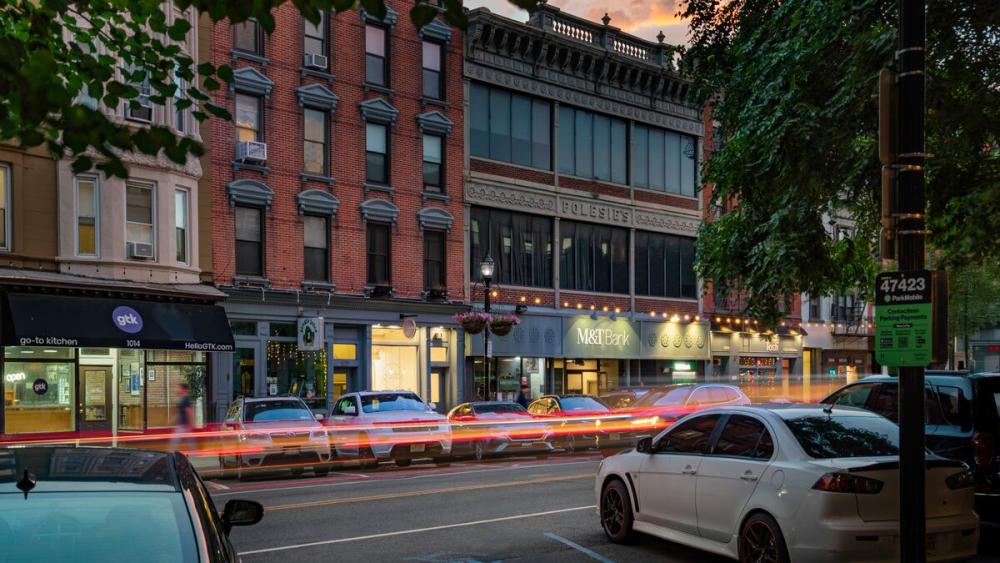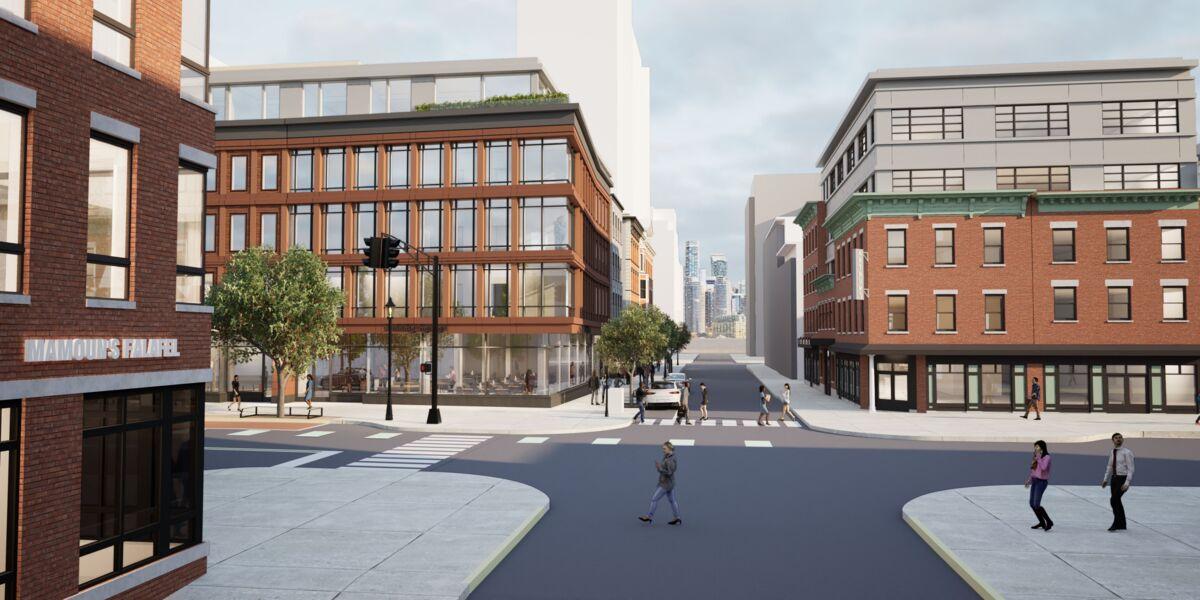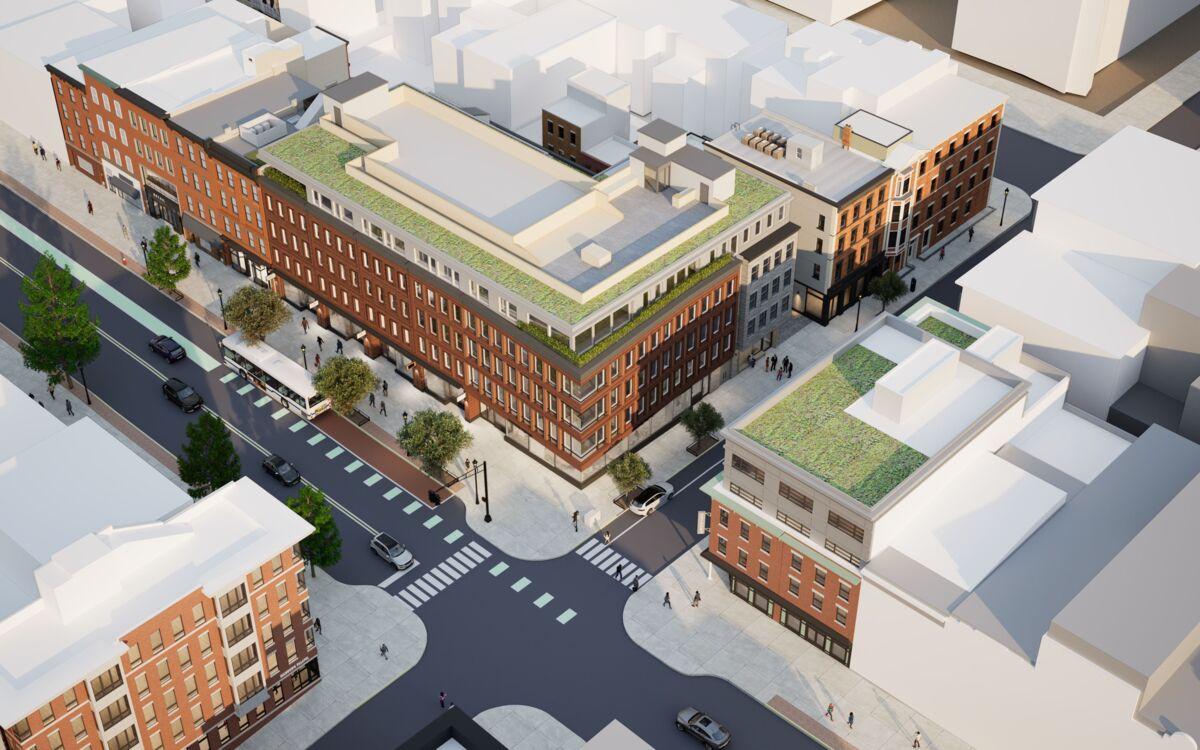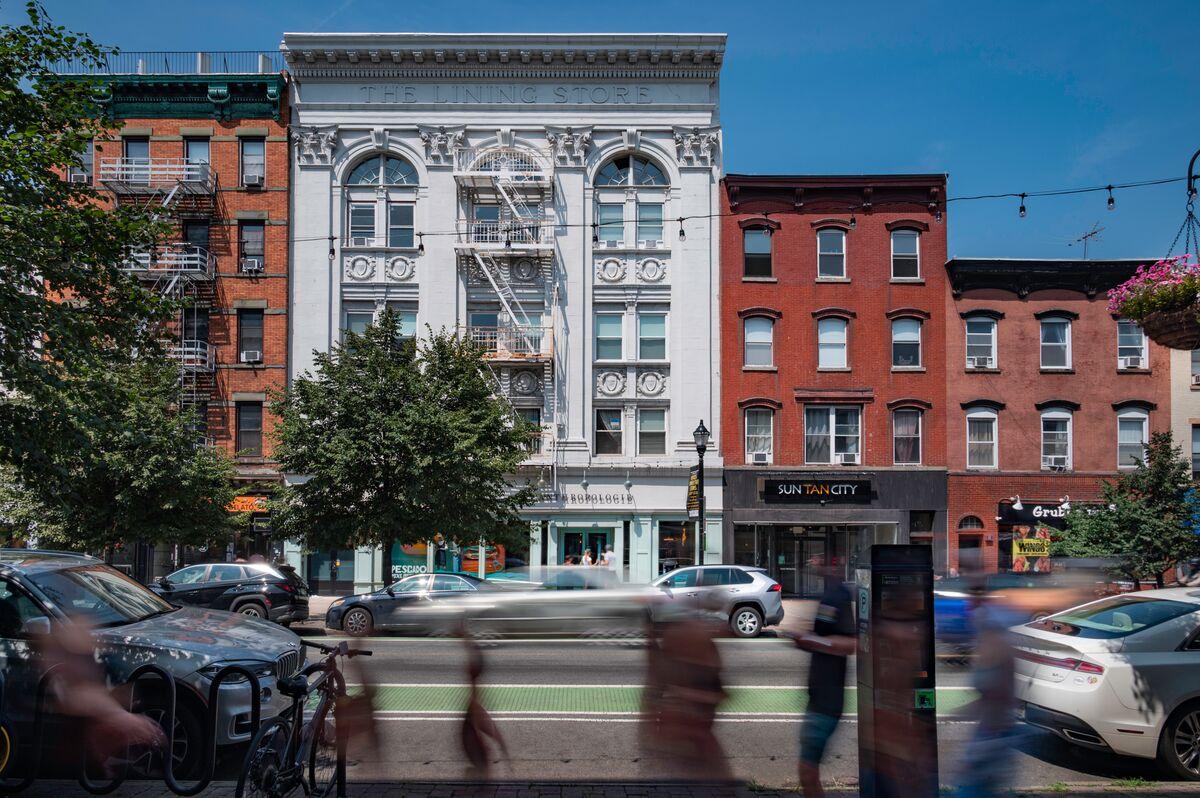
On the surface, Hoboken, New Jersey, has long existed in the shadow of its much larger neighbor across the Hudson River, New York City. But this compact city of roughly 60,000 residents has a storied history and charm all its own—and now counts Federal Realty Investment Trust (NYSE: FRT) among its top property owners.
Measuring roughly one square mile, Hoboken was once a vacation destination for New Yorkers and later a bustling port city and industrial hub. Experiencing fits and starts since the 1970s, the city has shed its once-faded industrial past and undergone an economic rebirth. Today, it’s one of the most sought-after residential communities in the New York metro area and home to a vibrant retail, restaurant, and cultural scene.
Federal Realty, which in early 2020 seized on a rare opportunity to take a major stake in the future of historic Hoboken, invested $190 million to acquire a majority stake in 40-building portfolio amassed by UNLMTD Real Estate, a family-owned real estate firm active in the region for decades.
“It’s a pretty unique situation to be able to acquire that much space in an urban setting like Hoboken,” says Stuart Biel, senior vice president for regional leasing at Federal Realty, based in North Bethesda, Maryland.
“With UNLMTD’s local relationships and our regional and national relationships, we felt it would be a great way for us to introduce some of the brands that consistently choose Federal Realty to Hoboken,” he adds.
The Evolution of Washington Street
The 170,000-square-foot portfolio is a collection of low-rise, brick-and-masonry buildings located mostly along historic Washington Street, Hoboken’s main commercial corridor. The portfolio consists mostly of ground-floor retail space but also includes 129 apartments and second- and third-story offices.
During the last five years, Federal Realty has fine-tuned its retail tenant mix, bringing in new-to-market brands (such as Madewell, Lovesac, and Sorellina Italian Kitchen) that complement the street’s eclectic mix of shops and restaurants. As one local saying goes, “if you can’t find it on Washington Street, you’re not looking hard enough.”
“We love the physical makeup of Washington Street. It feels to us like a lot of the other great [shopping] streets in the country in terms of its innate character,” Biel says.
“The bones of Washington Street have been there for some time. The main thing to happen [since we entered the market] is the tenancy has gotten tighter and more curated,” he says, noting that Federal Realty’s retail space is nearly 100% leased.


A Bigger Footprint
Two years after its initial foray into Hoboken, Federal Realty seized on another unique opportunity, acquiring one of the last remaining development parcels along Washington Street in partnership with UNLMTD.
Securing zoning approval for a proposed mixed-use development on the site took more than a year, but not because the project faced opposition. From the start, it was well-received by city officials and neighboring property owners, according to Federal Realty. But the project is located in a designated historic district, which meant the city paid close attention to even slight deviations from existing design guidelines, such as the proposed placement of windows.

The city “worked with us through an 18-month process to make sure we were delivering something that resonated with their vision for the area,” says Patrick McMahon, senior vice president for regional development at Federal Realty.
“Washington Street has been the primary commercial corridor for over a century. So, a lot of eyes are on it. The city cares for it greatly, as they should,” he adds.
Last spring, Federal Realty broke ground on the $46.5 million project, which will include 45 apartment units (five designated as affordable) and 10,233 square feet of ground-floor retail space. The building is expected to be ready for occupancy in the first quarter of 2027 and attain LEED Gold certification for its energy and water efficiency.
Federal Realty has already leased about 60% of the retail space, striking deals with New Balance and Pura Vida Miami, a fast-casual restaurant that will open its first location in New Jersey in the building. Interest in the remaining retail space and apartments has been strong, Biel notes.
Something Old, Something New
Federal Realty’s investments in Hoboken represent something of a departure for the company. Rather than acquiring high street retail space, the company has traditionally emphasized high-quality open-air shopping centers and select mixed-use projects in markets such as Bethesda, Maryland and San Jose, California.
“Most of our traditional portfolio is larger pieces of land that we control entirely,” Biel says. “What allowed us to consider Hoboken was the ability to acquire so much at once. It wouldn’t have been a market we could have entered if we had to pick off individual buildings.”

Today, Federal Realty’s investments in the so-called Mile Square City are part of a larger strategy of redirecting value from mature assets into “dynamic opportunities” that define the next phase of growth. “Typically, we create the environment. In this case, we are plugging into an existing dynamic environment,” McMahon explains.
Small City, Big Demand
It’s not hard to see why such a small city captured the attention of one of the country’s largest retail REITs. Decades of population growth have transformed Hoboken into one of the most densely populated cities in the country.
The city has long been a magnet for young professionals and families seeking a less expensive, more neighborhood-oriented alternative to Manhattan. Nearly a third of its residents range in age from 20 to 34, a demographic driver of robust demand for more modern housing and retail offerings, according to Federal Realty. The city’s median household income ($176,943 in 2023) is more than one and a half times that of the state.
Charming brownstones, parks, and impressive views of Manhattan are part of Hoboken’s allure. Just as importantly, its transportation infrastructure, which includes 24/7 PATH train service and a ferry system, makes it relatively easy to commute to Manhattan.
On the PATH, Hoboken is just one stop away from Manhattan’s West Village, where apartments rent for roughly twice as much. Ferry service connects to Downtown and Midtown Manhattan on the West Side. On the far West Side of Midtown, the Related Companies has revitalized the area with its mixed-use Hudson Yards project, the largest private development in U.S. history.
Hoboken “is an extension of Manhattan in a livable, charming way,” Biel says. “It’s an amazing way to live in the New York metro area without being in the middle of Manhattan.”
While Hoboken is still an affordable alternative to Manhattan, strong demand for apartments and a constrained development environment have driven up rents and led to a tight vacancy rate of less than 4%. In 2024, apartment rents rose by 3.2% on average, exceeding the 1.7% increase for the metro area, according to Federal Realty.
Federal Realty’s mixed-use project at 301 Washington Street is expected to return between 6%-7% in its first year, with substantial growth potential as the neighborhood continues its upward trajectory, according to the company.

Hoboken in Focus
Since Federal Realty first entered Hoboken, the pace of investment in the market has picked up. The company’s leasing efforts, Biel notes, have brought greater exposure to Hoboken among national brands. Whole Foods, for instance, is expected to open its first Hoboken store on Washington Street in the near future. Meanwhile, select apartment projects, including the 386-unit Hoboken Connect development, will add hundreds of housing options in the next several years.
“The evolution of Hoboken was underway, but it has accelerated since our initial investment and some of the moves we’ve been making,” McMahon says.
For its part, Federal Realty plans to put down deep roots in Hoboken. “This is a long-term investment for us,” McMahon adds. “We’ll continue to evolve [our holdings] and look incrementally to add on should it make sense.”

